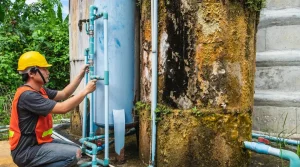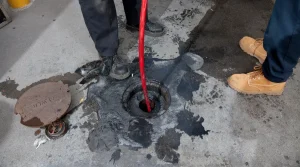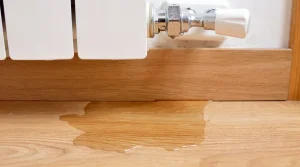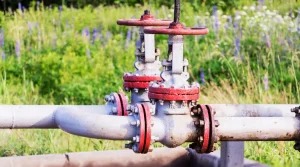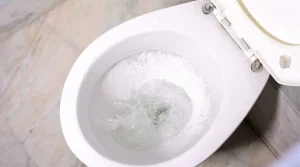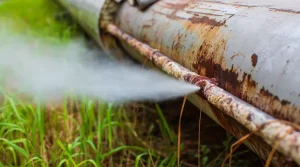When a plumbing emergency hits, it can be tempting to grab your toolbox and fix it yourself. While some minor plumbing issues are manageable with basic DIY skills, others can quickly spiral out of control—causing property damage, health hazards, and costly repairs. So, how do you know when to take action yourself and when it’s time to call in a professional?
This guide will help you understand the key differences between DIY plumbing tasks and true plumbing emergencies that demand expert help.
Can You Handle It Yourself?
1. Your Experience and Comfort Level
If you’ve successfully handled leaky faucets, minor clogs, or running toilets in the past, you might feel comfortable tackling basic plumbing jobs. However, plumbing systems are more complex than they appear, especially when it comes to water pressure, drainage, and piping.
Mistakes can lead to water leaks behind walls, mold growth, or even structural damage. Unless you’re confident in your knowledge and skills, trying to handle a plumbing emergency without training may end up costing you more in the long run.
2. How Serious Is the Problem?
Small issues like a dripping faucet or a slow-draining sink are usually safe to handle with tools like a plunger or wrench. But if you’re dealing with any of the following, it’s likely a plumbing emergency:
- Sudden water leaks or flooding
- Burst pipes
- Raw sewage backup
- No water in the house
- Low or inconsistent water pressure
- Water heater failure
These problems can escalate rapidly and require professional equipment to fix properly.
3. Time vs. Cost
DIY repairs might seem cheaper at first, but if you don’t have the tools or end up making the problem worse, you’ll spend more correcting the issue. Time is also a factor—if you’re on a tight schedule or unsure of what you’re doing, a licensed plumber can diagnose and solve the issue quickly.
Hiring a professional during a plumbing emergency often saves you time, money, and unnecessary stress.
4. Tools and Equipment
You might be able to fix a clogged drain with a plunger or snake, but bigger problems often require pipe cutters, cameras, thermal imaging, or hydro-jetting tools. Buying or renting these just for a single job is rarely worth it. Experienced plumbers arrive with everything they need, ready to handle any plumbing emergency on the spot.
5. Plumbing Codes and Compliance
Most people don’t consider that plumbing work—even inside your own home—is subject to local codes and safety regulations. If you’re doing anything beyond basic maintenance, unpermitted work may void your home insurance or create resale issues.
Professional plumbers ensure that your plumbing emergency is resolved correctly, safely, and legally.
Safe DIY Fixes
For homeowners with some basic plumbing knowledge, here are a few issues you can usually handle:
- Leaky faucet: Usually a worn washer or O-ring—an easy and affordable fix.
- Running toilet: Often due to a faulty flapper or fill valve, which are simple to replace.
- Clogged drain: A plunger or baking soda and vinegar solution can clear small blockages.
- Loose fixtures: Tightening connections or applying plumber’s tape can often resolve these.
If you try these and the problem doesn’t go away—or gets worse—it may have developed into a plumbing emergency that needs professional attention.
When It’s Definitely a Plumbing Emergency
Some plumbing situations should never be handled alone. Call a professional immediately if you experience:
- Burst Pipes: This can lead to rapid water damage. Shut off your water and call a plumber now.
- Sewage Backup: Poses a serious health risk due to bacteria and toxins.
- Major Water Leaks: Water stains, ceiling damage, or pooling water mean hidden pipe damage.
- Water Heater Problems: Especially dangerous if gas-powered.
- Frozen Pipes: Improper handling can cause the pipe to rupture.
- No Water: A sudden stop in water flow could indicate a serious main line issue.
Every one of these scenarios qualifies as a plumbing emergency, and delaying professional help only worsens the situation.
FAQs About DIY Plumbing vs. Hiring a Pro
Q1: What’s the risk of DIY during a plumbing emergency?
You could make the problem worse, leading to more expensive repairs or insurance complications if the damage spreads.
Q2: What tools do I need for basic plumbing repairs?
Plungers, adjustable wrenches, plumber’s tape, and drain snakes are helpful for simple jobs.
Q3: Can DIY plumbing void warranties or insurance?
Yes. If your unlicensed work causes damage, you may not be covered by warranties or home insurance.
Q4: What’s the first thing I should do during a plumbing emergency?
Shut off the water main to prevent further flooding, then call a licensed plumber immediately.
Q5: How fast should I respond to a plumbing emergency?
Immediately. Even small delays can lead to significant damage and increased repair costs.
Final Thoughts
Not all plumbing issues require a professional, but when you’re faced with a true plumbing emergency, there’s no room for guesswork. Recognizing when to call in a plumber can protect your home from damage, maintain your plumbing’s integrity, and ultimately save you time and money.
If you’re in North Bergen or nearby areas and dealing with a plumbing emergency, BJC Plumbers North Bergen is just a call away. Our experienced technicians are available to respond quickly and resolve the issue with skill and precision. Don’t wait—contact us today and restore peace of mind to your home.


